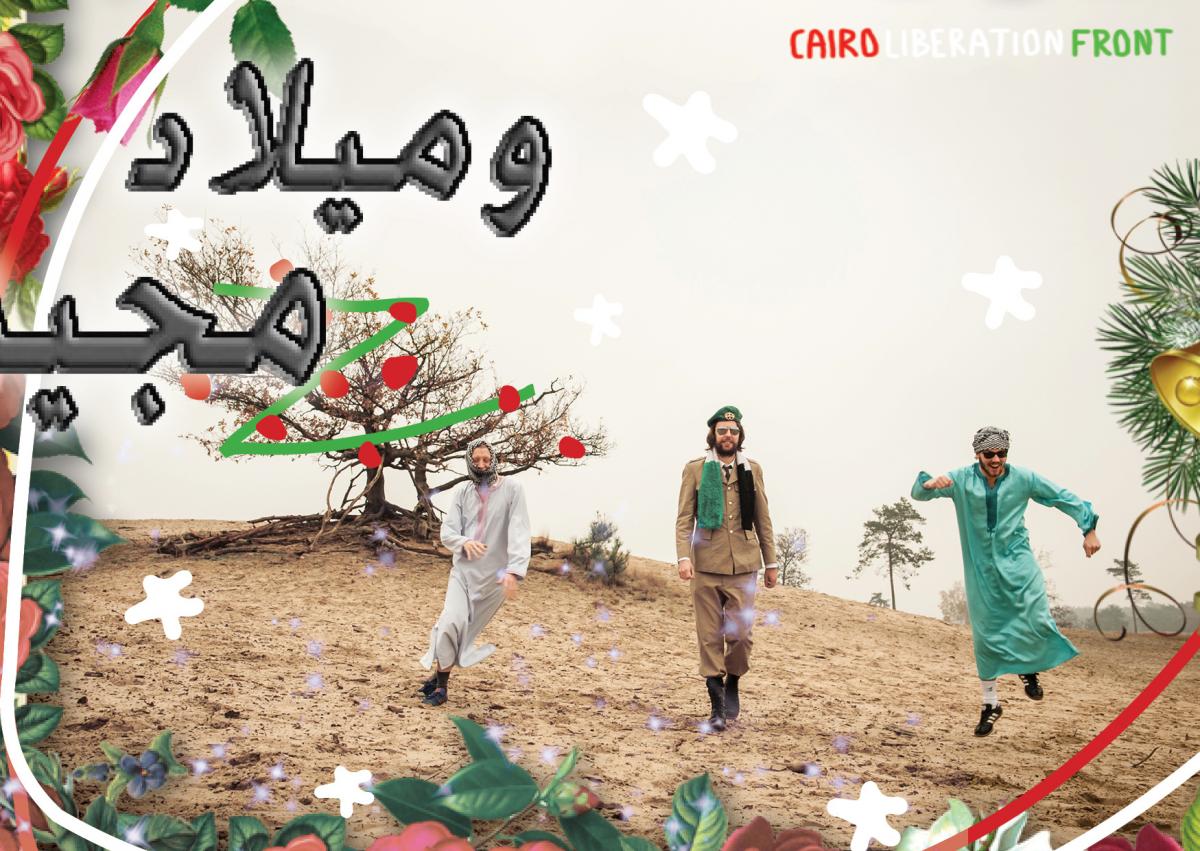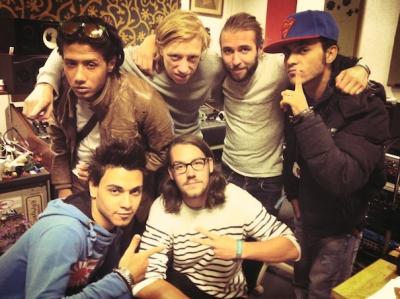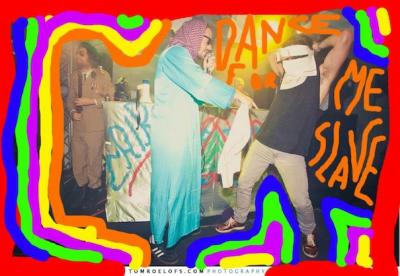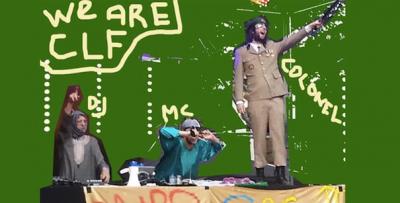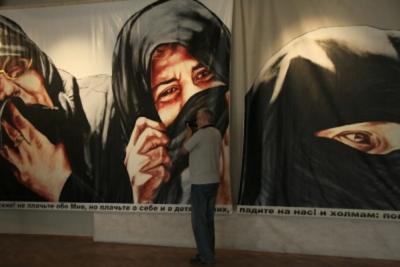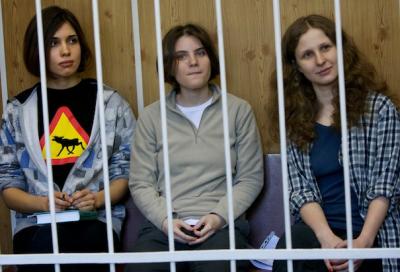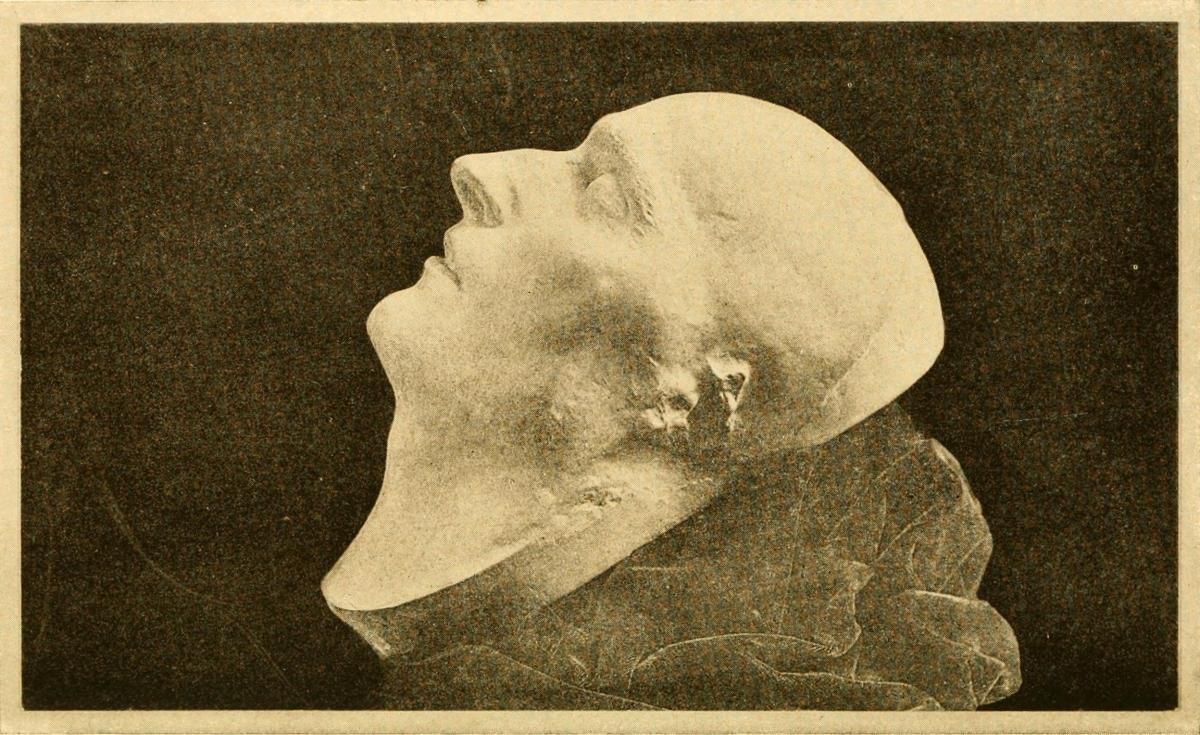
On the Occidental Perception of Sha3byton
The Swiss DJ Phil Battiekh is one of the first to import Electro-Sha3by/Shaaby/Chaabi from Egypt to Europe. In his essay he reflects about the occidental perception, fictitious causalities by the medias and young narratives – and he explains why he uses «Sha3byton» to name the speedy party sound of Cairo's satellite suburbs.
Anyone who has been to Cairo knows the music, even if he doesn’t know its name. Its high-pitched autotune melodies blast out of every scooter whizzing by. Its bass thumps from afar, vibrating from all directions, amplifying the pulse of the city. Every time its high octane rhythm and melismatic synthesizers capture me, I find myself in a mesmerized dancing fit I can only compare to a Tramadol meltdown. I call it Sha3byton and this is what it sounds like:
My name is Phil Battiekh, my home base is in Basel Switzerland and Cairo and I am the second DJ after Cairo Liberation Front from Holland (see Norient-article Missverständnisse erwünscht) to import this explosive sound from Egypt to Europe. The above link is my mixtape. I fell in love with the music during the time I first lived in Cairo.
For most people in Europe the music is known as «Electro-Sha3by/Shaaby/Chaabi» (see Norient-article Electro sha'abi: Autotune rebels in Cairo). I find that the term Electro-Sha3by does not grasp what this music is. Sha3by means folk (music). The term «Electro» holds the connotation of the music genre Electro, which is not similar to this music at all. Arguing that the artists use electronic sound technology also does not suffice, as every modern musician (including traditional sha3by artists) uses these techniques aswell. Within the Egyptian scene it is called mahraganat (which means festival (music)). Non-arabic speakers seem to often struggle with remembering this term though. That is why my crew and I chose the term Sha3byton for our mixtapes and (soon to be released) remixes and productions. As reggaeton is Caribbean music with hiphop influences (or vice versa), Sha3byton is Sha3by music with hiphop influences (or vice versa). Both styles being presented live in a «maratón» style made the name even more obvious for us.
Video not available anymore.
Now what have we done by inventing that term? We created a narrative. Whenever something new is discovered, people seem to have the need to somehow categorize it. In the case of Egypt, the modern day Columbus has found an answer to make any cultural phenomenon more digestible: linking it to the overthrow of Mubarak. To name some examples from recent media:
«The music’s swift rise from the alleys of neglected Cairo neighborhoods to car stereos and high-class weddings and even television commercials reflects the profound shifts in Egyptian society since the revolution. More people are looking for open discussion of social issues and willing to reach across class lines to find it. Like the revolution, the music came from young people who looked at their lives and did not see much to look forward to. So they made noise, spread their ideas through social media and were surprised by the results.»
New York Times, 11. May 2013
Although the rest of this article is generally good and informative, we see here a prime example of a journalist trying to somehow connect the dots. Just because the music grew more popular over time, that does not mean the popularity is related to other events that took place during that time, even if it does make a romantic story. Correlation does not mean causality.
«Electro Chaabi has played an important role as the soundtrack of the revolution, even if only as a side effect. The interesting thing is the fact that the supporters of ousted President Mursi also use Electro Chaabi. This couldn’t be overheard at the numerous protests in recent weeks.»
West-Deutscher Rundfunk, 1. September 2013
This one has to be my favourite. The author tries to establish a connection between the overthrow of Mubarak and Sha3byton. She is then baffled by the fact that Sha3byton is not only listened to by revolutionaries, but also by the Muslim Brotherhood. If the author were to go more into depth with that thought, she would realize that this music – as almost every kind of music – can be a vehicle for any desired content, as its conception as a genre is not linked to politics.
«It's impossible not to look at this music in terms of the Arab Spring, given that it has happened at the same time.»
The Quietus, 23. April 2013
Of course it is helpful as an outsider to a new environment to adapt by first looking at it from the perspective of what one already knows. Its kind of like training-wheels on a bicycle. But as stated before: correlation does not mean causality.
This false narrative is the essence of orientalism: Treating a society as a homogenous object of study and failing to make vital distinctions while doing so. In almost every article I have read about Sha3byton, its core is lost between rationalizations and social constructs, connecting dots to form a falsely socially aware picture to sell in a journal. In the process, they forget the main reason why Sha3byton is spreading so rapidly in Egypt: The music is fucking good.
To not be misunderstood: I am not an anti-sociological purist. There are certain anthropological observations that can be made about Sha3byton, for instance that it can be called an open source platform thanks to various websites where any artist can upload their new tracks and download cracked software and basic music projects. The music sometimes also touches on social issues, but that is not where its roots spawn. The two best, balanced and truthful articles on Sha3byton I know of can be found here and here.
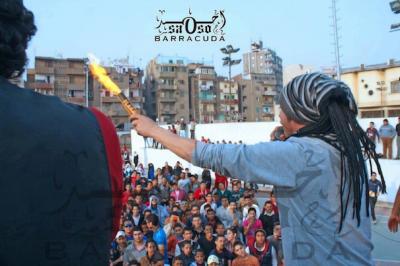
Music is physical energy, vibrations in the air, a vehicle for any person’s mind or message. It seems to me that some people (meaning Europeans) who have been culturally conditioned to «non-oriental» styles of music with fundamentally different tonal origins need narrative rationalizations to obstruct some kind of cultural dissonance. My armchair psychology can be taken with a grain of salt of course. Though I do hope that the coming generation of European Sha3byton DJs and MCs actually become active players in the scene and don’t treat the style of music as an Arab circus.
The current narrative around Sha3byton worries me and my crew. Although it might help the music gain short-term attention, it is not a sustainable concept, as it turns Sha3byton into an exotic novelty. Sha3bytons downfall in Europe will be when it is trapped in the genre «world music» (god, how I hate that term) and is only to be found in state funded cultural exchange programs, served on a silver tablet to rigid, wine-sipping intellectuals. We don’t want this to happen. We want to see the craziness we know and love from Cairo to spawn in every venue in every country. We are convinced that the music will deservedly be a global game-changer in the music industry, as reggae-dancehall from the small island Jamaica was.
Biography
Published on January 08, 2014
Last updated on April 29, 2024
